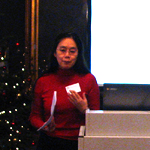Euroacademia Conferences
 Europe Inside-Out: Europe and Europeanness Exposed to Plural Observers (9th Edition) April 24 - 25, 2020
Europe Inside-Out: Europe and Europeanness Exposed to Plural Observers (9th Edition) April 24 - 25, 2020 Identities and Identifications: Politicized Uses of Collective Identities (9th Edition) June 12 - 13, 2020
Identities and Identifications: Politicized Uses of Collective Identities (9th Edition) June 12 - 13, 2020 8th Forum of Critical Studies: Asking Big Questions Again January 24 - 25, 2020
8th Forum of Critical Studies: Asking Big Questions Again January 24 - 25, 2020 Re-Inventing Eastern Europe (7th Edition) December 13 - 14, 2019
Re-Inventing Eastern Europe (7th Edition) December 13 - 14, 2019 The European Union and the Politicization of Europe (8th Edition) October 25 - 26, 2019
The European Union and the Politicization of Europe (8th Edition) October 25 - 26, 2019 Identities and Identifications: Politicized Uses of Collective Identities (8th Edition) June 28 - 29, 2019
Identities and Identifications: Politicized Uses of Collective Identities (8th Edition) June 28 - 29, 2019 The European Union and the Politicization of Europe (7th Edition) January 25 - 26, 2019
The European Union and the Politicization of Europe (7th Edition) January 25 - 26, 2019 7th Forum of Critical Studies: Asking Big Questions Again November 23 - 24, 2018
7th Forum of Critical Studies: Asking Big Questions Again November 23 - 24, 2018 Europe Inside-Out: Europe and Europeanness Exposed to Plural Observers (8th Edition) September 28 - 30, 2018
Europe Inside-Out: Europe and Europeanness Exposed to Plural Observers (8th Edition) September 28 - 30, 2018 Identities and Identifications: Politicized Uses of Collective Identities (7th Edition) June 14 - 15, 2018
Identities and Identifications: Politicized Uses of Collective Identities (7th Edition) June 14 - 15, 2018
Projecting `Britishness´ Abroad: The Case of the British Council
-
-

-
Presentation speakers
- Atsuko Ichijo , Faculty of Arts and Social Sciences, Kingston University, UK
- Download presentation
Abstract:
The paper investigates cultural diplomacy in the contemporary United Kingdom. It does so by examining the discourses on Britishness produced by the British Council, a body which operates at the arm’s length from the government whose activities are nonetheless incorporated in ‘public diplomacy’ pursued by the UK government. Public diplomacy is commonly associated with the idea of ‘soft’ power which emphasises persuasion through peaceful means such as cultural appeal. The British Council’s stated aim is ‘to build mutually beneficial relationships between people in the UK and other countries and to increase appreciation of the UK’s creative ideas and achievements’ and while it does not ‘carry out its functions on behalf of the Crown’ it is fully engaged with the enterprise of projecting ‘Britishness’ abroad. It is carrying out language programmes on behalf of the British government while pursuing its universalistic aim of promoting mutual understanding on a global scale. Because of its position, between the state and civil society, an analysis of the British Council’s policy documents provides interesting insights into the relationship between the state and civil society in maintaining national identity. If the state and civil society are trying to project different image of Britain to outside world because of their different positioning and agenda, it would shown in the discourse produced by a body such as the British Council where the discrepancy between the two would emerge most strongly. In the context of cultural diplomacy in general, the case of British Council is interesting because of the British colonial history; the British Council is in a sense a legacy of British imperialism which is trying to adjust the post-colonial, increasingly global world. In this regard, the chapter provides an analysis of the politics of identity maintenance in a former colonial power in Europe. -
Related Presentations

Differentiated Integration as a Trend of EU Future Development
- Nikolay Kaveshnikov

















